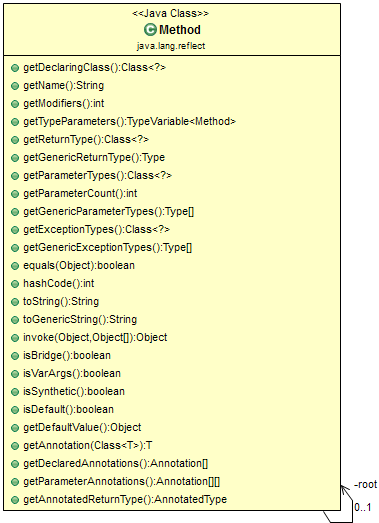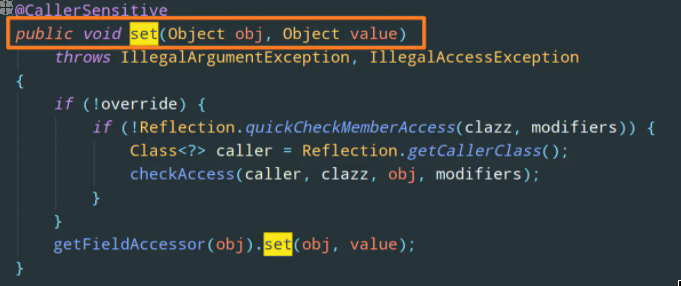

As mentioned earlier, we have first created an object obj of Class using the getClass() method. In the above example, we are trying to get information about the methods present in the Dog class. ("Modifier: " + Modifier.toString(modifier)) Method methods = obj.getDeclaredMethods() The Method class provides various methods that can be used to get information about the methods present in a class. Constructor class - provides information about constructors in a class.Field class - provides information about fields in a class.Method class - provides information about methods in a class.The package provides classes that can be used for manipulating class members. Reflecting Fields, Methods, and Constructors Note: We are using the Modifier class to convert the integer access modifier to a string. To learn more about Class, visit Java Class (official Java documentation). obj.getSuperclass() - returns the super class of the class.obj.getModifiers() - returns the access modifier of the class.obj.getName() - returns the name of the class.Using the object, we are calling different methods of Class. Here, we are creating an object obj of Class using the getClass() method. Notice the statement, Class obj = d1.getClass() Here, we are trying to inspect the class Dog. In the above example, we have created a superclass: Animal and a subclass: Dog.
#Java reflection get parameter mod
String mod = Modifier.toString(modifier) put this class in different Dog.java file We can use this object to get information about the corresponding class at runtime.Įxample: Java Class Reflection import Now that we know how we can create objects of the Class. class extension // create an object of Class Here, we are using the object of the Dog class to create an object of Class.ģ. Using getClass() method // create an object of Dog class

Here, the forName() method takes the name of the class to be reflected as its argument.Ģ. There exists three ways to create objects of Class:ġ. In order to reflect a Java class, we first need to create an object of Class.Īnd, using the object we can call various methods to get information about methods, fields, and constructors present in a class. The object of Class can be used to perform reflection. There is a class in Java named Class that keeps all the information about objects and classes at runtime. Have no effect on the arrays returned to other callers.In Java, reflection allows us to inspect and manipulate classes, interfaces, constructors, methods, and fields at run time. Through" a container annotation if one is present. The difference between this method and AnnotatedElement.getDeclaredAnnotation(Class) is that this method detects if itsĪrgument is a repeatable annotation type (JLS 9.6), and if so,Īttempts to find one or more annotations of that type by "looking Present on this element, the return value is an array of length If there are no specified annotations directly or indirectly Such annotations are either directly present or Returns this element's annotation(s) for the specified type if getDeclaredAnnotations public Annotation getDeclaredAnnotations().Specified by: getAnnotationsByType in interface AnnotatedElement Type Parameters: T - the type of the annotation to query for and return if present Parameters: annotationClass - the Class object corresponding to theĪnnotation type Returns: all this element's annotations for the specified annotation type ifĪssociated with this element, else an array of length zero Throws: NullPointerException - if the given annotation class is null Have no effect on the arrays returned to other callers.
#Java reflection get parameter free
The caller of this method is free to modify the returned array it will

More annotations of that type by "looking through" a container Is that this method detects if its argument is a repeatableĪnnotation type (JLS 9.6), and if so, attempts to find one or The difference between this method and AnnotatedElement.getAnnotation(Class) If there are no annotations associated with this element, the return Returns annotations that are associated with this element.


 0 kommentar(er)
0 kommentar(er)
